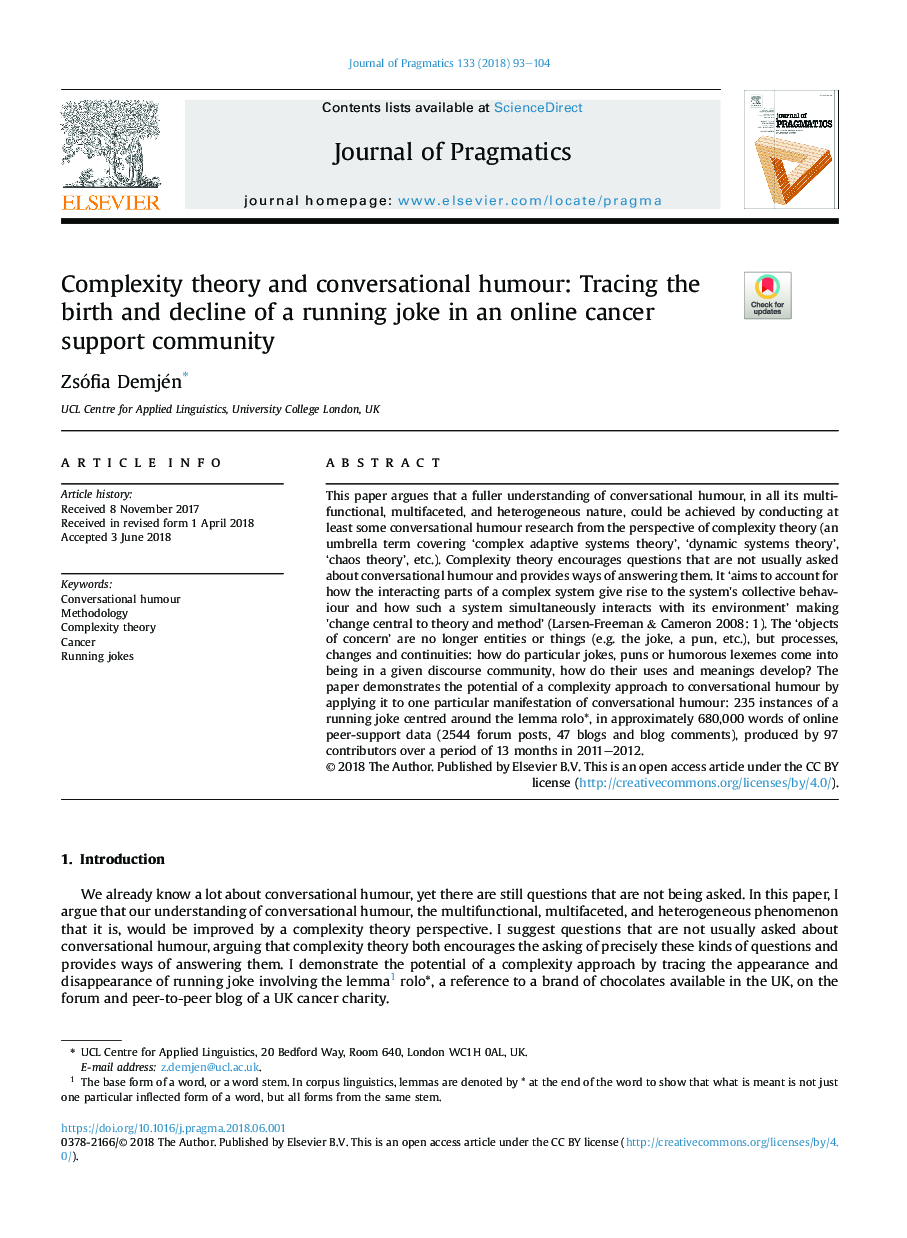| کد مقاله | کد نشریه | سال انتشار | مقاله انگلیسی | نسخه تمام متن |
|---|---|---|---|---|
| 7297217 | 1474667 | 2018 | 12 صفحه PDF | دانلود رایگان |
عنوان انگلیسی مقاله ISI
Complexity theory and conversational humour: Tracing the birth and decline of a running joke in an online cancer support community
ترجمه فارسی عنوان
تئوری پیچیدگی و طنز گفتاری: ردیابی تولد و کاهش یک شوخی در حال اجرا در جامعه حمایت از سرطان آنلاین
دانلود مقاله + سفارش ترجمه
دانلود مقاله ISI انگلیسی
رایگان برای ایرانیان
کلمات کلیدی
طنز مکالمه، روش شناسی، نظریه پیچیدگی، سرطان، جوک های در حال اجرا
موضوعات مرتبط
علوم انسانی و اجتماعی
علوم انسانی و هنر
زبان و زبان شناسی
چکیده انگلیسی
This paper argues that a fuller understanding of conversational humour, in all its multifunctional, multifaceted, and heterogeneous nature, could be achieved by conducting at least some conversational humour research from the perspective of complexity theory (an umbrella term covering 'complex adaptive systems theory', 'dynamic systems theory', 'chaos theory', etc.). Complexity theory encourages questions that are not usually asked about conversational humour and provides ways of answering them. It 'aims to account for how the interacting parts of a complex system give rise to the system's collective behaviour and how such a system simultaneously interacts with its environment' making 'change central to theory and method' (Larsen-Freeman & Cameron 2008: 1). The 'objects of concern' are no longer entities or things (e.g. the joke, a pun, etc.), but processes, changes and continuities: how do particular jokes, puns or humorous lexemes come into being in a given discourse community, how do their uses and meanings develop? The paper demonstrates the potential of a complexity approach to conversational humour by applying it to one particular manifestation of conversational humour: 235 instances of a running joke centred around the lemma rolo*, in approximately 680,000 words of online peer-support data (2544 forum posts, 47 blogs and blog comments), produced by 97 contributors over a period of 13 months in 2011-2012.
ناشر
Database: Elsevier - ScienceDirect (ساینس دایرکت)
Journal: Journal of Pragmatics - Volume 133, August 2018, Pages 93-104
Journal: Journal of Pragmatics - Volume 133, August 2018, Pages 93-104
نویسندگان
Zsófia Demjén,
